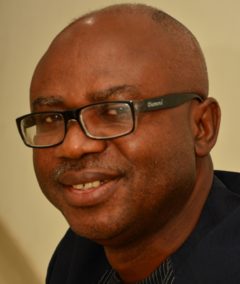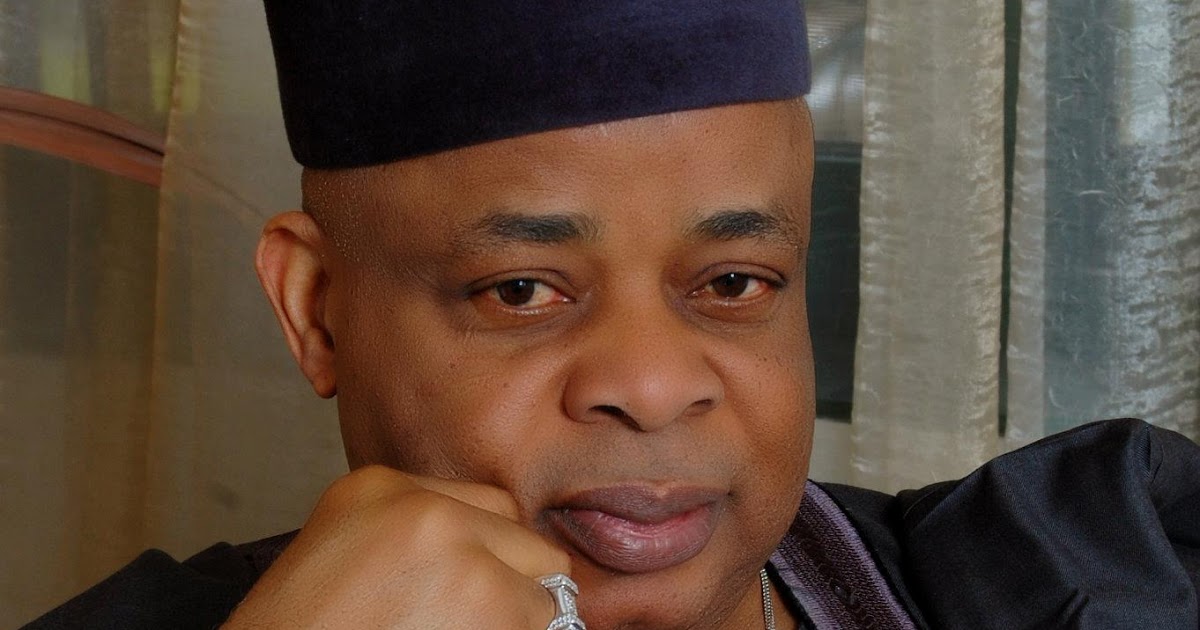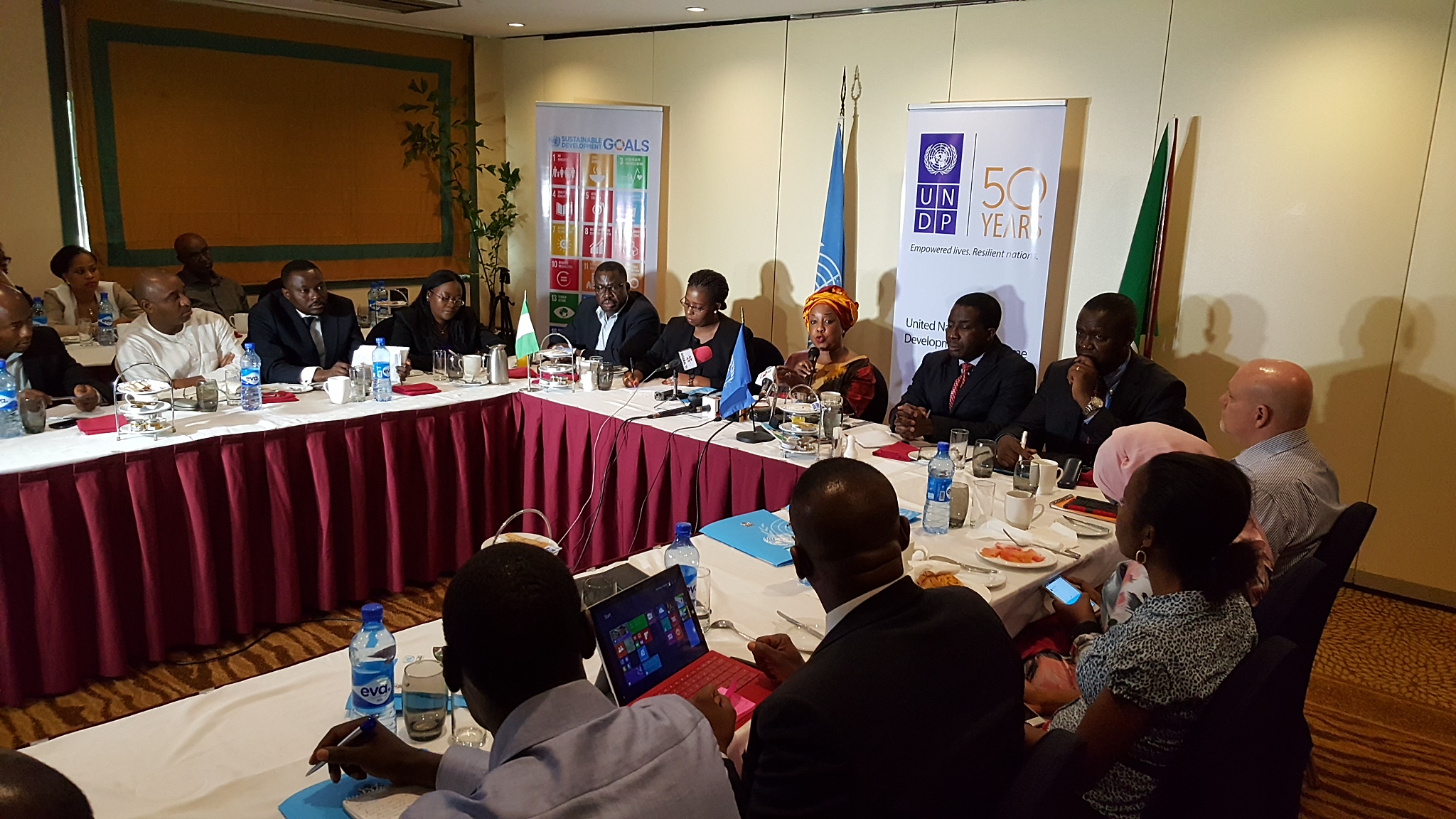By ANIEBO NWAMU —
Many must have saved this column of last Sunday in a safe place. They can now validate or invalidate my forecasts on yesterday’s presidential poll, having witnessed what happened and as the results are likely to start coming in today. I’m writing this well in advance of Voting Day, and, since you are reading it on the morning after, it couldn’t have had any influence on how anyone voted.
So how did the election go, fellow Nigerians? Here’s a checklist of what you read in this space last week. Tick + (for correct) and x (for incorrect):
* the INEC card reader is sure to spark either a revolution or a commotion
* the card reader will not work at several polling stations: it will malfunction or be forced to malfunction
* voting may not be concluded even four days after
*with the card reader, there will be no more than 20million votes nationwide
*Jega may not announce [the final results] even by April 4
* if the poll turns out to be credible, APC candidate Muhammadu Buhari will get up to 10million out of 20million
*PDP candidate Goodluck Jonathan may get about 7.8million
*President Jonathan is likely to get at least 25 per cent in 25 or 26 states
*Buhari may meet the requirement in 27 or 28 states
*if vote thieves had their way, we would have a different outcome
*excuses may be concocted to declare the election “inconclusive”
*if the mafia succeeded in marching the nation into a deadlock, there would be an interim government
* another major crisis would be like pouring petrol into a raging fire
Let me now explain what informed my guesses: It was for fear of offending the electoral law, which has not yet approved electronic voting in Nigeria elections, that INEC calls its device “electronic voter authentication system”. If the device worked as planned, a major blow would be dealt on vote thieves. If it failed, voting at the presidential election could drag on for four days or longer, and perhaps precipitate an “inconclusive” poll and ultimately a deadlock.
The magic of the card reader, which has been proven in elections conducted in western countries and even in African nations like Ghana, is that it cleanses the voter register. Only people registered in a polling unit are recognised by the device. At the end of the collation period, it sends results to a central server. In Nigeria’s case, however, the card reader spells trouble – trouble for vote thieves if it works and trouble for Nigeria if it fails.
INEC chairman Attahiru Jega appeared set to break the jinx this year, despite the opposition from both politicians and fellow electoral chieftains. He was forced to postpone the polls in February, and was arm-twisted to discard the card readers and let everybody vote with their temporary voter card (TVC). Interpretation: the politicians preferred rigged polls. And because Jega stood his ground, several ploys (including forcing him to proceed on terminal leave) were devised to get him out of the way.
The card reader is a game changer, though not flawless. For all the care and meticulousness attempted during the voter registration period, fictitious names still filled the voter register. Under-aged voters, especially those aged 12 to 17, were registered across the country. They are human beings, however. Cattle and pigs were also “registered”, as were mountains and trees – the photos on PVCs are those of human beings anyway. Even with the six-week extension of the general polls, INEC records still showed that 81 per cent collected PVCs. The truth is that millions of those cards belong to non-humans, but their human guardians could not step forward in daylight to collect them.
The INEC card reader must have presented more problems on Polling Day. It takes an average of 5 minutes (not 10 seconds as INEC says) for the device to process one PVC. This means that only 60 prospecting voters would be accredited within the five-hour period (8am to 1pm) slated for accreditation of voters. Yet, an average polling station has 500 names.
Many won’t have the chance to vote because every voter must go to the centre where they registered; the card reader has only the names of voters in a particular centre. This means that those who travelled many kilometres to register or who registered in faraway towns and cities but who have returned to their hometowns for election would be disenfranchised, contrary to what INEC had promised during registration: that one could vote anywhere. Not many have persevered to wait a few hours to register, waste more hours to chase their TVCs and PVCs, travel home for registration, travel home for collection of PVCs (where they were available), and travel home yet again in a bid to leave trouble spots.
Jega explained that where a card reader failed to work, INEC would not replace it before the end of accreditation, and that the election in that particular point would be postponed to the following day when a new card reader would be provided. This is Nigeria: many card readers would fail or be destroyed deliberately. So I calculated that voting would continue for some days after March 28.
Election fraudsters and their accomplices had been looking for loopholes. PVCs had been bought off pauperised villagers for as little as N500.
Until yesterday, the card reader had not been used at an election in Nigeria before. Were Nigerians desirous of peaceful polls, they would help INEC to succeed. But most of the vocal minority – the elite – are not after free and fair polls: anything that would get them elected or get their kinsmen and cronies elected is welcome. In a sense, the courts of Nigeria have been “electing” most officeholders.
Whatever the outcome of the polls, let everyone be still; nobody should be used to kill innocent compatriots or destroy public facilities. Fellow Nigerians, the enemies of Nigeria – those who want to balkanise Nigeria – could be at work. Let’s disappoint them. We’re far better off as one nation. All that is needed to make this country great is good leadership.
By now, at least one of two things should have happened: freedom for the Chibok girls and killing or capturing of Abubakar Shekau. If neither happened, the credibility of two presidents would be at stake: Goodluck Jonathan of Nigeria who announced that the 200 girls seized from Chibok on April 14, 2014, were alive and well and would be rescued “soon”, and Idris Debby of Chad who said he knew where Shekau was hiding and ordered him to surrender or get killed.
The credibility of Nigeria’s security chiefs is also at stake: they promised to end the menace of insurgency in north-east Nigeria before the general election would hold. Nevertheless, we give kudos to the soldiers. From Mafa to Gwoza, from Chibok and Baga to Hawul, and from Kaga to Maiduguri, relief is returning to traumatised residents. Had the momentum been maintained like this, the insurgency would have since ended. One hopes the relative peace would be maintained throughout Nigeria.
#














